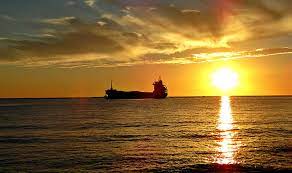-As is customary in the run up to any gathering of the Marine Environment Protection Committee (MEPC) at the International Maritime Organisation (IMO) predicable fault lines are emerging.
Oil producing nations tend to err on the side of caution when it comes to laying down green goals for shipping, while states where climate change is having the most visible effect are the ones demanding the most swift changes to the industry’s carbon footprint with international shipping bodies hovering somewhere in between these two competing factions.
The Marshall Islands, New Zealand, Solomon Islands, and Vanuatu have this week called on IMO member states to endorse their new ambitious proposal to cut pollution from ships by at least 80% by 2040 and reach absolute zero by no later than 2050.
These targets, the backers say, are consistent with the 1.5°C climate-warming pathway of the Paris Agreement, and thus should be supported by all 175 IMO member states which are parties to the treaty and which agreed to keep global warming well below 2°C.
The Pacific countries want the resolution to be considered at MEPC 79 in December, and to be adopted at MEPC 80, which is expected to convene in spring 2023.
Albon Ishoda, the Marshall Islands’ Ambassador to South Korea, said: “Climate changes represents an existential threat to small island nations in the Pacific. If we don’t keep temperature rise to 1.5°C, our cultures and peoples risk disappearing under the rising sea levels. We have no other choice but to return to the IMO and urge our international partners to stand in solidarity with our region and support our proposal for decisive action on shipping pollution. We need to start viewing ambitious decarbonisation as the best and least cost opportunity for the industry, not as an insurmountable barrier.”
The IMO is in the process of renegotiating its initial strategy for bringing down shipping emissions, currently aiming for only a 50 percent reduction by 2050 compared to 2008 levels. Member states at IMO’s sister body at the United Nations, the International Civil Aviation Organisation (ICAO), voted this month to adopt a collective long-term global aspirational goal of net-zero carbon emissions by 2050.
Allan Lilia, the Solomon Islands’ minister of infrastructure development, said: “The increasing urgency of action on the climate issue makes the adoption of this resolution necessary to give more certainty both to investors and to climate vulnerable countries. The longer we delay clear direction to the markets, the more difficult and more costly the transition will become.”
As well as MEPC in December, the 2022 United Nations Climate Change Conference, more commonly referred to as COP27, will take place in Egypt from November 6. Splash will be bringing readers key takeaways from both summits.
SOURCE: SPLASH247/PACNEWS













